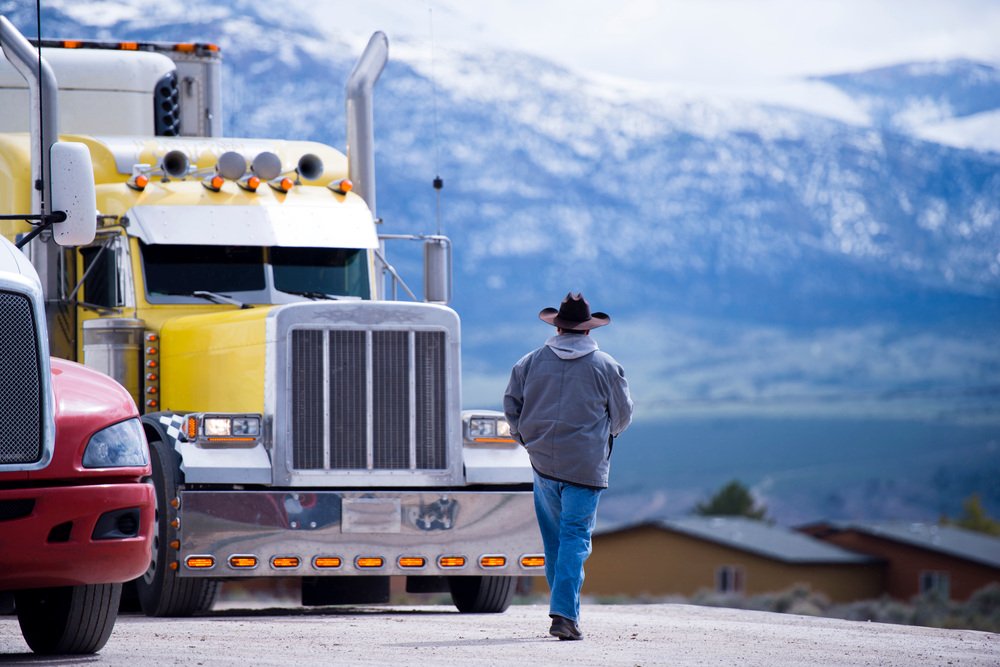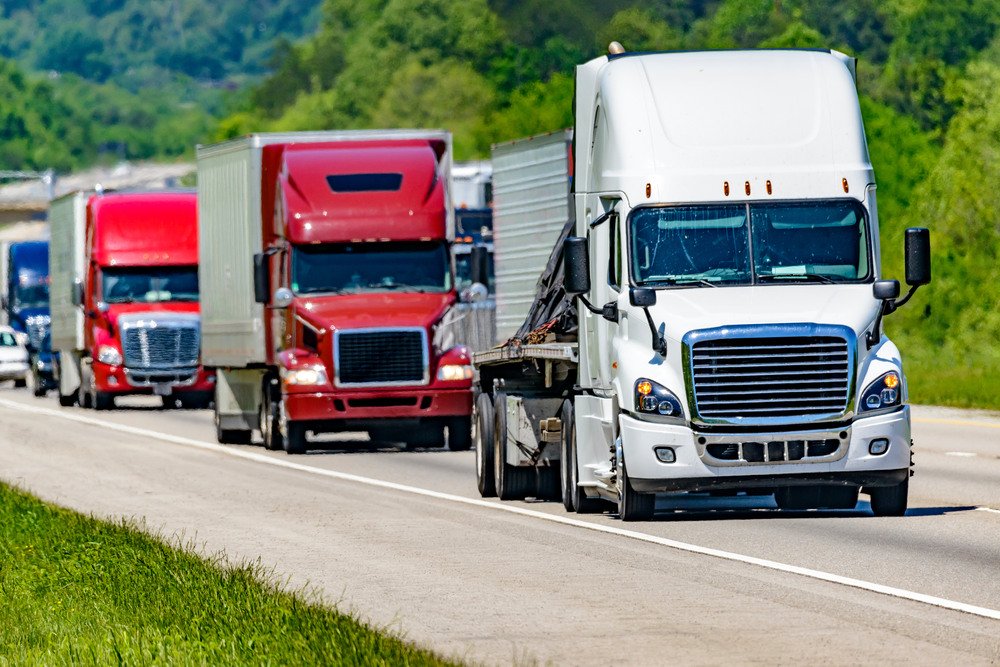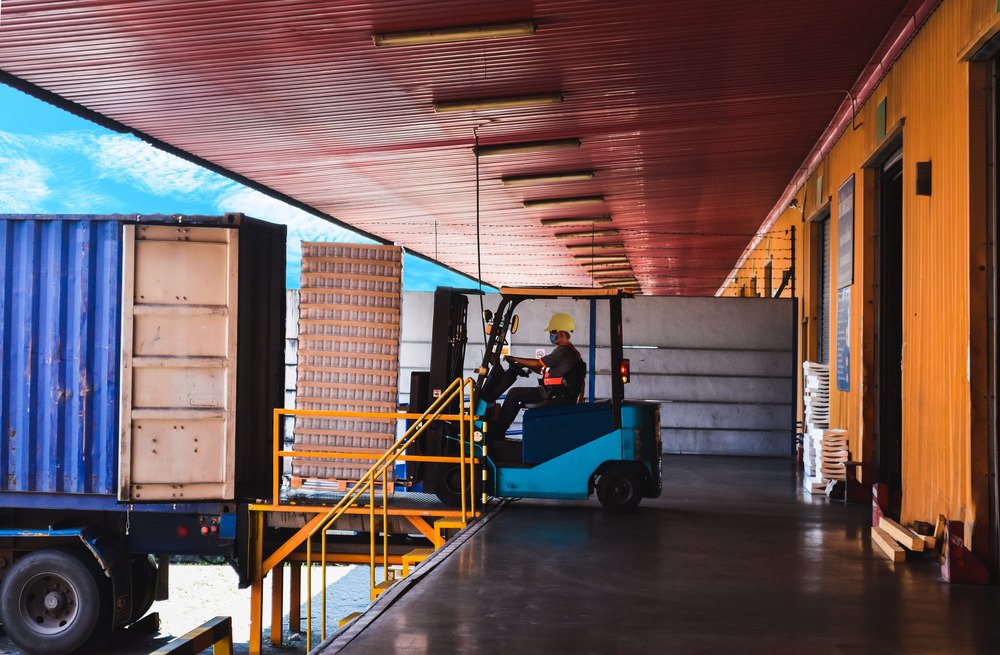
One of the most critical success metrics in the trucking industry is securing appropriate insurance protection. It’s not just a legal requirement. It also serves as vital protection for your business assets and financial future.
However, choosing the right option is difficult, considering the complicated jargon and the 47% increase in cost in the last decade. Do you need supplemental liability insurance? What exactly is a limited damage waiver? Why can’t you just get normal, personal-use insurance for your trucks?
We’re here to help. Let’s break down what you need to know about commercial truck rental insurance, how it works, and which providers offer the best protection for your fleet.
What Is Commercial Truck Insurance?
Commercial truck insurance is a business insurance category specifically designed to address the unique risks, liabilities, and regulatory requirements of operating commercial trucks.
Commercial truck insurance encompasses a broader and more complex range of insurance protection than standard personal automobile insurance, which is designed for personal use vehicles.
One of the biggest reasons you have truck rental vehicle insurance is that trucking comes with substantially higher risks. These include major accidents and intense roadside assistance requirements.
Fundamental Differences from Personal Auto Insurance
Trucking insurance is a much bigger financial responsibility than car carrier insurance. However, this isn’t by accident but rather by design. Here are the key differences between personal and fleet insurance:
Liability Limits
Commercial truck policies have significantly higher liability limits, often in the millions of dollars. On the other hand, personal auto policies typically max out at several hundred thousand dollars. This difference reflects the potential for catastrophic damages from large commercial vehicle accidents.

Risk Assessment Framework
Insurance providers evaluate commercial trucking risks using metrics different from those used for personal vehicles. These include the specific trucking operation type, rental agreements, cargo classifications, interstate vs. intrastate operations, driver qualifications, and safety protocols.
Regulatory Compliance
Commercial truck insurance must comply with both federal and state regulatory requirements. Requirements vary based on factors such as vehicle weight, cargo type, listed authorized drivers, and operational jurisdiction.
Specialized Coverage
Commercial policies also have industry-specific requirements uncommon in personal auto policies. For example, fleets might have additional cover, such as truck cargo coverage, trailer interchange insurance, and non-trucking liability coverage.
Commercial Truck Rental Insurance Specifics
Insurance protection looks different within the truck rental vehicle insurance market. The coverage needs to provide protection based on the particular needs of the trucking industry.
This subcategory serves rental vehicles and businesses that regularly or occasionally rent or lease commercial trucks rather than maintaining an owned fleet.
Commercial truck rental insurance becomes essential in numerous business scenarios:
- Seasonal Demand Fluctuations: Businesses experiencing periodic surges in transportation needs can expand their capacity through temporary rentals covered by appropriate insurance.
- Fleet Maintenance Periods: When owned vehicles undergo maintenance or repairs, rental trucks maintain operational continuity.
- Business Expansion Testing: Companies considering permanent fleet expansion can test additional capacity through insured rentals before purchasing.
- Specialized Equipment Needs: Businesses occasionally requiring specialized trucks (refrigerated units, flatbeds, etc.) can secure appropriate coverage for these temporary rentals.
- Business Startups: New trucking operations can begin generating revenue through insured rentals while building capital for eventual vehicle purchases.
How Does Commercial Truck Insurance Work?
Commercial truck insurance is a risk management system designed specifically for the trucking industry. Because of that, it can look different from what you’re used to in personal automobile insurance. So, what can you expect from the insurance process?

Risk Assessment
The process begins with risk assessment. Insurance providers evaluate your operation based on several factors: listed authorized drivers, vehicle types, cargo classifications, route geography, and your history of accidents and claims.
They also consider the nature of your rental transactions, including the length of the rental period and the type of equipment involved. All of these details influence how your premium is calculated. Generally, higher-risk factors—such as transporting high-value goods or having limited driving experience—lead to higher costs.
Coverage Selection
Next is coverage selection. This step involves choosing coverage types and limits that align with your business needs and budget.
Whether you’re covering physical damage to the rental truck, securing protection against property damage or bodily injury, or adding supplemental liability insurance (SLI) for broader third-party liability, it’s important to tailor your truck insurance to the demands of each rental agreement.
You’ll also want to confirm that your policy covers roadside assistance, limited damage waivers, or downtime support, especially if you’re relying on the truck for continuous operations.
Policy Issuance
Once you finalize your coverage and pay the premium, the insurer issues your policy. This document outlines what’s covered, any exclusions, and the terms that apply during the rental period.
At the rental counter, you’ll likely be asked to provide proof of insurance or purchase short-term coverage through the rental company. Be sure to review all rental documents carefully to understand your obligations and avoid any unexpected coverage gaps.

Claims Process
If an accident occurs, the claims process kicks in. You’ll submit details of the incident along with relevant rental documents, including the rental agreement and proof of listed authorized drivers.
The insurer will assess the circumstances (looking at liability, physical damage, and financial responsibility) and determine what’s covered. If approved, they’ll issue payment for your losses, minus any deductibles.
Understanding this process can help operations that rely heavily on truck rentals reduce risk, control costs, and protect their business assets.
5 Best Commercial Truck Insurance Companies
When selecting insurance for commercial truck rentals, these providers consistently rank among the industry’s best for their specialized trucking coverage, customer service, and value.
Progressive Commercial
Progressive Commercial stands out for its comprehensive commercial truck insurance options and specialized focus on the trucking industry. Progressive excels in providing flexible options for small to medium-sized fleets, making them an excellent choice for operations with 1-10 drivers.
You can customize your coverage based on your truck type and usage and take advantage of competitive rates bolstered by multiple discount opportunities.
Progressive’s 24/7 claims service is backed by specialists who understand trucking, and policy management is easy with its streamlined online tools. Progressive also partners with an extensive network of truck repair shops, making it easier to get back on the road quickly.
1st Guard
1st Guard specializes in trucking insurance, giving it unique insight into the industry’s specific needs. This focus makes it particularly attentive to the unique challenges faced by smaller trucking operations.
Their policies are built around owner-operators, with rental-specific options and physical damage coverage tailored to truckers’ needs.
The claims process is straightforward and direct, eliminating red tape and delays. They also offer occupational accident coverage and are known for their high-quality customer service, especially among independent drivers who often need a more personalized touch.

Marquee Insurance Group
Marquee Insurance Group is excellent for finding coverage for higher-risk operations, making them valuable for newer trucking businesses or those with challenging insurance histories.
They offer competitive rates tailored to companies still finding their footing, along with access to multiple carriers, giving you more options in one place. Their team understands the complexities of interstate trucking regulations, ensuring your coverage aligns with compliance needs.
Plus, their flexible payment plans are built around the cash flow realities of running a trucking business, helping you stay protected without stretching your budget.
RLI Insurance
RLI Transportation Insurance provides specialized insurance products designed specifically for the trucking industry. The company has been around for decades and is known for understanding the unique risks that trucking companies of all sizes face.
RLI is particularly strong in cargo coverage and employs dedicated transportation underwriters who truly understand the risks involved in trucking. Their reputation for excellent claims handling makes them a trusted name in the industry.
Great West Casualty
As a company focused exclusively on the trucking industry since 1956, Great West Casualty has the experience and connections that make it a safe and reliable choice.
They bring in-depth knowledge of trucking operations and offer one of the most respected safety programs in the business. Great West also stands out for its specialized claims handling, predictable renewals, and pricing stability.

Commercial Truck Insurance Requirements
Driving a commercial truck without insurance isn’t an option and is illegal in most states. While requirements differ based on location, a few standard federal requirements apply to most commercial trucking operations.
Requirements include:
- Primary Liability Insurance: Federal regulations require a minimum of $750,000 in liability coverage for general freight carriers. This increases to $1,000,000 for those hauling hazardous materials and can reach $5,000,000 for certain hazardous materials.
- Cargo Insurance: While not federally mandated for all carriers, those with operating authority typically need $5,000-$100,000 in cargo coverage, depending on what you’re transporting.
- Physical Damage Coverage: While not legally required, we highly recommend protecting your investment and employees with physical damage and bodily injury coverage.
- Workers’ Compensation: Required in most states if you have employees.
In most cases, rental companies require you to either purchase insurance or show proof of coverage that extends to rental vehicles before they allow you to take possession of the truck.

What Does Commercial Truck Insurance Cover?
Commercial truck rental insurance typically includes several types of coverage, two of the most common being liability and physical damage coverage.
Liability coverage pays for bodily injury and property damage you cause to others. It’s the most basic form of protection and is required by law in most states.
Physical damage coverage, on the other hand, protects the truck itself from risks like collisions, fire, theft, and vandalism. Depending on your needs, several add-on policies can offer extra protection.
You also have other insurance options, including cargo coverage, which protects the freight you’re hauling from damage or loss caused by accidents, fire, theft, or other covered incidents.
Non-trucking liability kicks in when the truck is used for personal, non-business-related purposes. Rental reimbursement helps you replace a truck if your truck is sidelined because of a claim. This often works in tandem with downtime coverage, which compensates you for the income you lose while your truck is being repaired.
Uninsured and underinsured motorist coverage protects you if you’re hit by a driver who doesn’t have adequate insurance, protecting you from major losses beyond your control.
Lastly, medical payment coverage covers medical expenses for you and your passengers, regardless of who was at fault.
Conclusion
Choosing the right commercial truck rental insurance protects your business, keeps you compliant, and safeguards your bottom line.
Every operation is different—truck type, cargo, routes, and structure all matter. That’s why working with a trucking-savvy insurance agent is key to finding the best fit.
Do you need financing, too? Mission Financial Services offers tailored loans for trucking businesses, whether you’re a first-time buyer or rebuilding credit. Let’s get your expansion rolling: contact us today!


